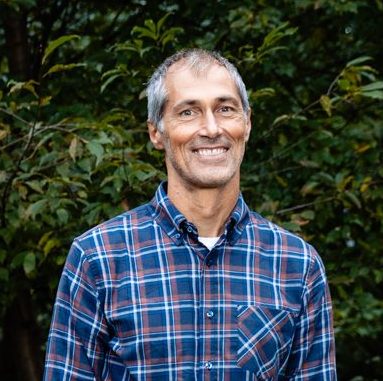Larry is an avid outdoors enthusiast; hiking, skiing, biking, surfing, climbing, and gardening. He has a B.S. in Biology from the University of New Hampshire including course study on the Isles of Shoals examining the intertidal ecology at the field study station on Appledore Island.
He served two years as a Peace Corps Volunteer in Nepal teaching Science and English as a Second Language to 4th to 8th grade students taking any chance he could get to hike throughout the Himalayas. There was a time he was a confident conversational speaker and reader in the Nepali language. When he eventually does return, there is no doubt the language cobwebs will clear and he will comfortably navigate the remote villages again.
Upon returning to the States, Larry worked in the Henry Mountains and Fish Lake regions of southern Utah leading high school students through 60-day therapeutic wilderness programs. Students learned to navigate by map and compass, build fires from handmade bow and spindle fire kits while using the sights, sounds, smells of nature to study life. The focus on the philosophies of experiential education lead to study at the School for International Training in Brattleboro, VT. Larry learned how to design, lead, facilitate international exchange and travel programs and landed an internship at the Putney School teaching ESL science and English and working in the International Education office.
For a decade or so, Larry lived in Brooklyn where he taught Biology and Earth Science at both the middle school and high school levels in the NYC public schools. With his budding interest in food and gardening, he summer interned at the largest rooftop farm in New York City, and installed and maintained multiple live green roofs in both NY and NJ.
With our focus on environmental science and his lead role in our Outdoor School, Larry encourages students, in and outside the classroom, to connect with Earth and explore our interconnectivity. He also inspires mathematical thinking, global perspectives, and ownership, understanding, and respect for the value and importance of technology in our day to day lives.
